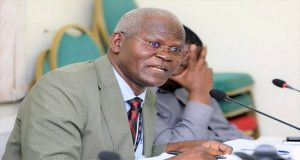
By An Executive Editor
Power Distributor, Umeme, lost Shs 26 billion in stolen conductors, vandalized transformers and poles among others in 2021 alone.
“The cost of none supply when the lines are off is much bigger,” Umeme’s Head of Communications, Peter Kaujju, told Kampala Gazette Wednesday in an interview, and appealed to the public to “guard this infrastructure”
Police’s Annual Crime Report for 2021 shows that Force recovered vandalized electricity transmission lines and related infrastructure worth Shs 3 billion.
This is just part of the 196, 081 crimes committed in 2021 compared to 195, 931 reported in 2020.
A Daily Monitor story published online on May 7, 2022 showed that the Uganda Electricity Transmission Company Limited (UETCL) was forced to close a pilot security system project after a $412,000 (about Shs1.5b) system that had been installed to protect transmission lines in Mabira forest was vandalized.
The Auditor General’s report reveals that the energy transmitter spent Shs1.5b on the reconstruction of transmission lines that had been vandalised between 2017 and 2021.
The report adds that Shs500m was spent on the purchase of galvanised angle bars to replace vandalised tower members.
Parliamentary Committee on Natural Resources in the Electricity Amendment Bill of 2022 wants a penalty for interference with meters and electrical lines, vandalism, and illegal connections increased from Shs 100, 000 or imprisonment for one year to Shs 4 million or ten-year imprisonment or both.
According to the Committee Deputy Chairperson, Dr. Emily Kugonza, UETCL spends on average over Shs 600 per year to repair vandalized towers on the existing lines across the country.
Criminal Investigations Director, AIGP Tom Magambo said during the launch of the Crime Report recently that the Force is challenged in its efforts to tackle crime.
“Some of these are internal, others are external while others are within the Justice chain,” Magambo said, noting that the challenges include: manpower, logistical constraints and insufficient budget among others.






